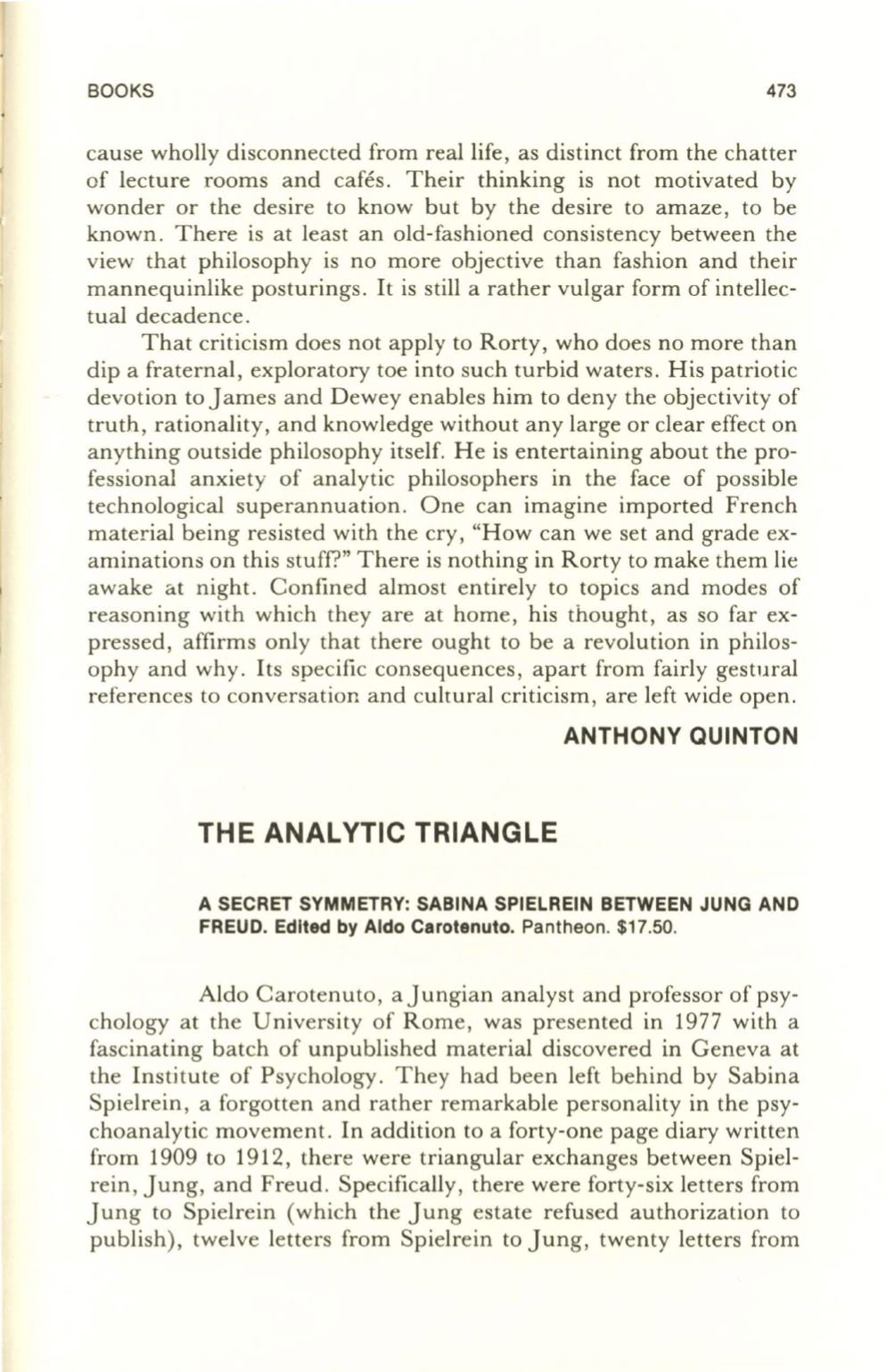
BOOKS
473
cause wholly disconnected from real life, as distinct from the chatter
of lecture rooms and cafes. Their thinking is not motivated by
wonder or the desire to know but by the desire to amaze, to be
known. There is at least an old-fashioned consistency between the
view that philosophy is no more objective than fashion and their
mannequinlike posturings .
It
is still a rather vulgar form of intellec–
tual decadence .
That criticism does not apply to Rorty, who does no more than
dip a fraternal, exploratory toe into such turbid waters. H is patriotic
devotion to James and Dewey enables him to deny the objectivity of
truth, rationality, and knowledge without any large or clear effect on
anything outside philosophy itself. He is entertaining about the pro–
fessional anxiety of analytic philosophers in the face of possible
technological superannuation. One can imagine imported French
material being resisted with the cry, "How can we set and grade ex–
aminations on this stuff?" There is nothing in Rorty to make them lie
awake at night. Confined almost entirely to topics and modes of
reasoning with which they are at home, his thought, as so far ex–
pressed, affirms only that there ought to be a revolution in philos–
ophy and why. Its specific consequences, apart from fairly gestural
references to conversation and cult ural criticism, are left wide open.
ANTHONY QUINTON
THE ANALYTIC TRIANGLE
A SECRET SYMMETRY: SABINA SPIELREIN BETWEEN JUNG AND
FREUD. Edited
by
Aldo Carotenuto.
Pantheon. $17.50.
Aldo Carotenuto, aJungian analyst and professor of psy–
chology at the University of Rome, was presented in 1977 with a
fascinating batch of unpublished material discovered in Geneva at
the Institute of Psychology. They had been left behind by Sabina
Spielrein , a forgotten and rather remarkable personality in the psy–
choanalytic movement. In addition to a forty -one page diary written
from 1909 to 1912, there were triangular exchanges between Spiel–
rein, J ung, and Freud. Specifically, there were forty-six letters from
Jung to Spielrein (which the Jung estate refused authorization to
publish), twelve letters from Spielrein to Jung, twenty letters from


